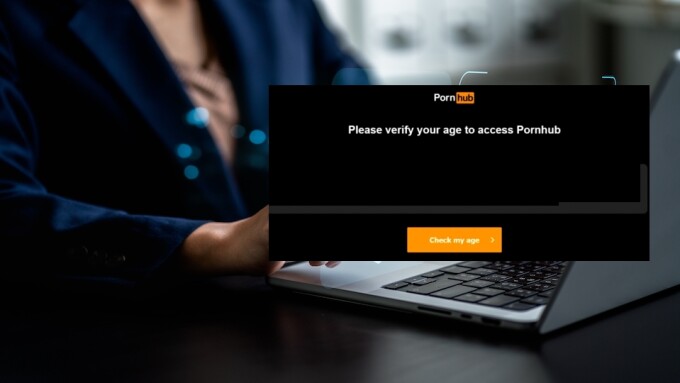RICHMOND, Va. — New laws mandating age verification for adult websites in Virginia and Mississippi, passed by both states’ legislatures earlier this year, will take effect on Saturday.
Sites that do not age-verify users in those states as prescribed by the laws “will be liable for civil suits should a minor access — and be harmed by — content on the site,” Free Speech Coalition warned on Friday.
As XBIZ reported, the Mississippi law was sponsored by Republican state Sen. Nicole Boyd (Oxford), who has also been tasked by that state’s Republican governor with “mapping out what the next chapter of the pro-life agenda should be.”
Boyd met with Louisiana Senate President Pro Tem Beth Mizell to craft a copycat version of Louisiana’s controversial Act 440. That age verification measure, championed by religious anti-porn therapist and legislator Laurie Schlegel (R-Matairie), became state law in Louisiana on Jan. 1.
“I was shocked at the prevalence of pornography among our teen population,” Boyd told the Mississippi Senate.
Unlike Louisiana, which had a digital driver’s license program in place to help with compliance, Mississippi’s mobile ID provider “does not offer website operators the functionality to remotely validate IDs,” the FSC noted.
According to the adult industry trade group, the Virginia version of the age verification law also defines material “harmful to minors” differently than most states.
“Oddly,” the FSC pointed out, “it includes ‘non-opaque clothing’ and ‘sadomasochistic abuse.’”
“It’s not a question of if these will be declared unconstitutional, but when,” FSC Director of Public Affairs Mike Stabile told XBIZ on Friday. “Keeping kids from accessing adult content is an admirable goal, but writing laws meant to punish the industry, without consulting with the industry — or even people familiar with technology — is a recipe for laws that are ineffective and dangerous.”
As in Utah and Louisiana, Stabile added, “these laws punish compliant sites while encouraging the growth of illegal sites and pirated content.”
A Regulatory Minefield Designed by Anti-Porn Crusaders
According to FSC, Virginia’s law is “extremely vague regarding the methods sites can use to comply. It allows for ‘a commercially available database that is regularly used by businesses or governmental entities for the purpose of age and identity verification’ or ‘another commercially reasonable method of age and identity verification.’”
The FSC also released suggestions for website operators trying to navigate the regulatory minefield set up for them by anti-porn politicians and lobbies.
“While we’re looking at potential challenges to these laws, everyone’s risk tolerance is different,” the FSC pointed out. “There are several options for website operators subject to AVS mandates.”
Earlier today, Pornhub decided to shut down access to its platform in Virginia and Mississippi, explaining that the new state laws — drafted with the cooperation of groups that have targeted the site specifically and whose avowed goal is to “eradicate pornography” — present too much risk.
Pornhub previously followed the same strategy in Utah, shutting down site access in that state when another copycat version of the Louisiana law went into effect there.
The sponsor of the Arkansas copycat bill, Sen. Tyler Dees (R-Siloam Springs), admitted in February that the state-by-state age verification initiatives are merely a stepping stone toward the ultimate goal of a federal mandate.
“My hope is that we protect children and their innocence in [the] state of Arkansas and then send a message across the country that we need something similar built into federal law as well,” Dees declared.
FSC has called the current Republican campaign against adult material online, including the copycat age verification schemes, “the most aggressive censorship we’ve seen in decades.”
For XBIZ’s June cover feature with an in-depth look at age verification legislation, click here.







